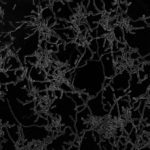Lien vers Pubmed [PMID] – 24625892
Lien DOI – 10.1038/nrmicro3236
Nat Rev Microbiol 2014 Apr; 12(4): 239-51
Sexual reproduction is a pervasive attribute of eukaryotic species and is now recognized to occur in many clinically important human fungal pathogens. These fungi use sexual or parasexual strategies for various purposes that can have an impact on pathogenesis, such as the formation of drug-resistant isolates, the generation of strains with increased virulence or the modulation of interactions with host cells. In this Review, we examine the mechanisms regulating fungal sex and the consequences of these programmes for human disease.

